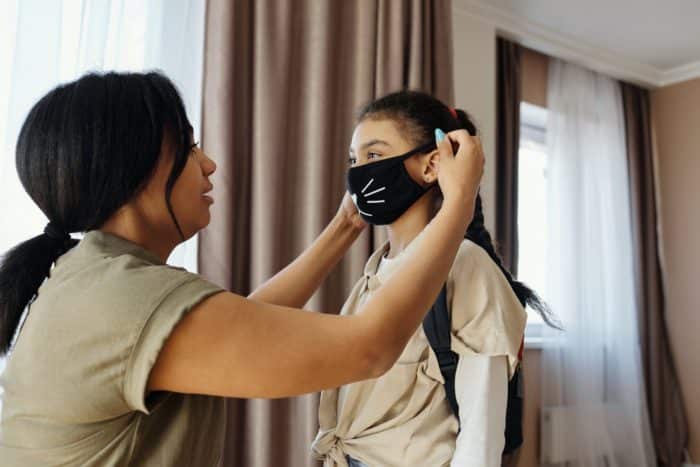Facing the New Normal: Transition to Post-Pandemic Life

By Tracy Hart, LCMHC
In recent weeks, it seems that a new hope is awakening. With the widening availability of COVID-19 vaccines, as well as the arrival of spring weather, we wonder if a “return to normal” could be just around the bend. Of course, it’s impossible to know for sure how soon that may happen, or even whether the new normal will resemble our lives before the pandemic.
A recent CNBC article explored how some adults are feeling anxious about the transition back to a more social and busy day-to-life routine after many months of limited contact.
For kids and teens, it’s even more likely that the prospect of going back to normal could bring a mixture of excitement and fear – as well as many questions!
One unique aspect of this pandemic year is that the transition from normal life to lockdown mode was not anticipated or predictable. An abrupt shift occurred with the expectation that it would be a limited crisis of a few weeks. Then this “temporary” way of life dragged on without a clear endpoint, including a jarring stop-and-start sensation for many families in terms of when kids would return to school in person. The ongoing certainty may have particularly impacted families who are grieving a loss, whether their loved one died during this time period or prior to COVID-19.
Although there are no easy answers right now, it may help to keep in mind the following tips about helping your child or teen cope with the transition to life beyond the virus.
Expect that some highly anticipated experiences may come with a letdown. After months of emotional buildup around visiting extending family, starting practice with a sports team, or other long-awaited activities, you may see that these experiences feel unexpectedly difficult for your child – especially if the activity is altered in some way, such as continuing to wear masks during public outings.
Let them know that all feelings are OK to express. This may include having mixed-up feelings, or not knowing how to feel. You can also model talking about your own feelings as you anticipate big transitions such as no longer working remotely.
Encourage them to describe and document their experience. Kids and teens can benefit from hearing that they are having a unique and individual experience of this significant moment in history. Some teens and older children may be interested in making a video about their COVID-19 year. Even younger children can be assisted to create a simple book or series of drawings about how it has felt for them.
Finally, keep in mind that even positive transitions can often trigger feelings related to loss. The most important message for your child or teen is that no matter what you may find on the road ahead, you will face it together as a family.
Do you have questions for a Kids Path Counselor?
Kids Path offers free phone consultations about how to help children and teens cope with death or severe illness. Call 336-621-2500 (Greensboro) or 336-532-0100 (Burlington) and ask to be connected with a Kids Path counselor.
Tracy Hart is a children’s counselor on the Greensboro campus.

